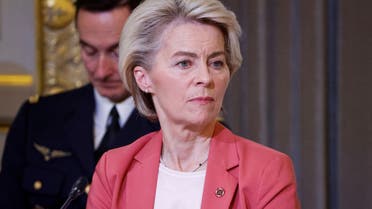European Commission President Ursula von der Leyen has pledged to boost EU defence spending and strengthen the defence industry over the next five years.
European Commission chief outlined her programme for a second mandate on Wednesday and urged MEPs in Strasbourg to support her and her new team of commissioners. The German Commission President’s second mandate was approved by MEPs in Strasbourg with a majority of 370 in favour and 282 against.
Ahead of the vote, citing Europe’s historic struggle to overcome conflict and tyranny, she warned of growing threats to the European system, from wars in Ukraine and the Middle East to a competitiveness gap with the United States and China.
Ms von der Leyen said the EU must develop its defence capabilities, promising to prepare a proposal on the future of European defence within the first 100 days of the new commission. She told MEPs:
“Russia is spending up to 9% of its GDP on defence. Europe is spending on average 1.9%. There is something wrong in this equation. Our defence spending must increase. We need a single market for defence. We need to strengthen the defence industrial base.”
Ms. von der Leyen has previously said the EU needs to invest €500 billion in defence over the next decade if it is to keep up with Russia and China.
Defence spending as a priority
In March, von der Leyen said that the EU needs to continue its policy of strengthening the armed forces of the bloc’s member states and to start producing new weapons for defence purposes. She also has prioritised the creation of a “European Defence Union.” Von der Leyen has nominated politicians from two frontline states for key positions: Kaja Kallas, former prime minister of Estonia, will become the EU’s chief diplomat on December 1, and Andrius Kubilius, former prime minister of Lithuania, will become the EU’s first-ever defence commissioner.
Earlier, the European Commission published the EU’s first ever defence industrial strategy. The document envisages the development of common defence projects within the bloc: by 2030, 40% of defence procurement by EU countries should be conducted on a joint basis.
